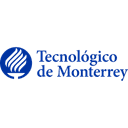This course is part of Lean Six Sigma.
Es en esta fase ANALIZAR es donde se aplican una serie de técnicas tanto de Seis Sigma como de Lean para realizar un análisis profundo del proceso con la finalidad de determinar los factores significativos que influyen en el comportamiento del mismo y usarlos para obtener un mejor nivel de desempeño.
4.9
(39 ratings)
4,143 already enrolled
Spanish
What you'll learn
Aplicar técnicas estadísticas para determinar factores significativos en procesos
Realizar pruebas de hipótesis e interpretar intervalos de confianza
Implementar análisis de varianza (ANOVA) para uno y dos factores
Aplicar la metodología 5S para optimizar espacios de trabajo
Desarrollar e implementar conceptos de fábrica visual
Utilizar la técnica SMED para reducir tiempos de cambio
Skills you'll gain
This course includes:
1 Hours PreRecorded video
15 assignments
Access on Mobile, Tablet, Desktop
FullTime access
Shareable certificate
Get a Completion Certificate
Share your certificate with prospective employers and your professional network on LinkedIn.
Created by
Provided by

Top companies offer this course to their employees
Top companies provide this course to enhance their employees' skills, ensuring they excel in handling complex projects and drive organizational success.





There are 4 modules in this course
Este curso forma parte de la especialización Lean Six Sigma y se enfoca en la fase "Analizar" de la metodología DMAIC. El programa proporciona a los estudiantes herramientas avanzadas para realizar análisis profundos de procesos e identificar factores significativos que influyen en su comportamiento. El curso combina técnicas estadísticas de Six Sigma con métodos Lean para determinar puntos críticos en los procesos. Los estudiantes aprenderán conceptos de variación e inferencia estadística, pruebas de hipótesis, análisis de varianza (ANOVA), metodología 5S, fábrica visual, herramientas de flujo continuo como SMED y celdas de manufactura, y técnicas de regresión lineal. Al completar el curso, los participantes serán capaces de aplicar estas herramientas para optimizar el desempeño de procesos productivos y de servicios.
Concepto de variación e inferencia estadística
Module 1 · 5 Hours to complete
Pruebas de hipótesis
Module 2 · 4 Hours to complete
Herramientas de Flujo continuo
Module 3 · 4 Hours to complete
Regresión lineal
Module 4 · 7 Hours to complete
Fee Structure
Individual course purchase is not available - to enroll in this course with a certificate, you need to purchase the complete Professional Certificate Course. For enrollment and detailed fee structure, visit the following: Lean Six Sigma
Instructors
Doctor of Administrative Engineering
Mohammad Reza Azarang Esfandiari is a professor at Tecnológico de Monterrey, where he has been part of the Industrial and Systems Engineering Department since 1986. He earned his Doctorate in Administrative Engineering from City University of London in 1998, a Master’s degree in Administration from Tecnológico de Monterrey in 1992, and a Master’s degree in Industrial Engineering from Queen’s University of Belfast in 1981. He also holds an Electronic Engineering degree with honors from Oxford Brookes University, completed in 1980. Dr. Azarang specializes in process improvement and quality management methodologies, including Lean Six Sigma. On Coursera, he offers courses such as "Introducción a Lean Six Sigma" and others focused on defining, measuring, analyzing, improving, and controlling processes. His work emphasizes practical applications of Lean Six Sigma principles to enhance organizational efficiency and performance.
Professor Emeritus
Edgardo Jorge Escalante Vázquez is a Professor Emeritus in the Industrial Engineering Department at Tecnológico de Monterrey. He holds a Doctorate in Management Science from Lancaster University, a Master's degree in Industrial Engineering from Ohio State University, a Diploma of Advanced Studies from Université de Rennes, and an Engineering degree in Electronics and Communications from ITESM. Dr. Escalante is a certified Black Belt and Master Black Belt in Six Sigma by the American Society for Quality and SigmaPro, respectively. He has over 37 years of experience as a consultant in applied statistics, Six Sigma, problem-solving, and quality and productivity improvement across Mexico, North, Central, and South America. Dr. Escalante is also an accomplished author, having written books on Six Sigma, Design of Experiments, Statistical Process Control, and Quality Improvement. His courses on Coursera include "Analizar e incrementar - Parte 1" and "Definición y Medición," focusing on quality improvement methodologies. He is part of the Lean Six Sigma Specialization, teaching students to apply statistical and manufacturing tools to identify and eliminate waste and defects.
Testimonials
Testimonials and success stories are a testament to the quality of this program and its impact on your career and learning journey. Be the first to help others make an informed decision by sharing your review of the course.
Frequently asked questions
Below are some of the most commonly asked questions about this course. We aim to provide clear and concise answers to help you better understand the course content, structure, and any other relevant information. If you have any additional questions or if your question is not listed here, please don't hesitate to reach out to our support team for further assistance.





